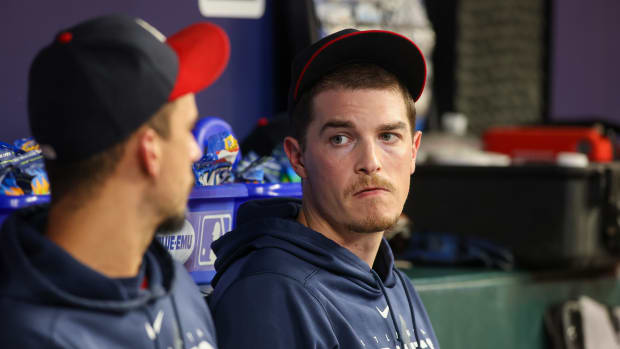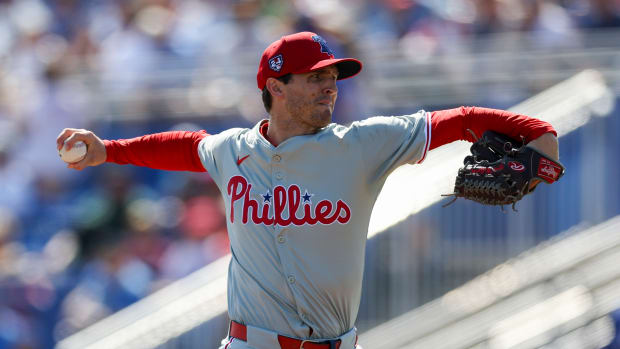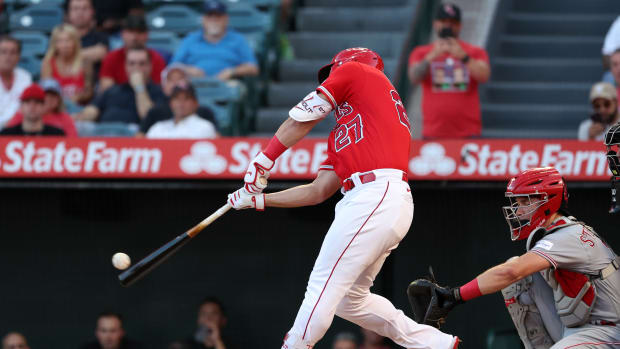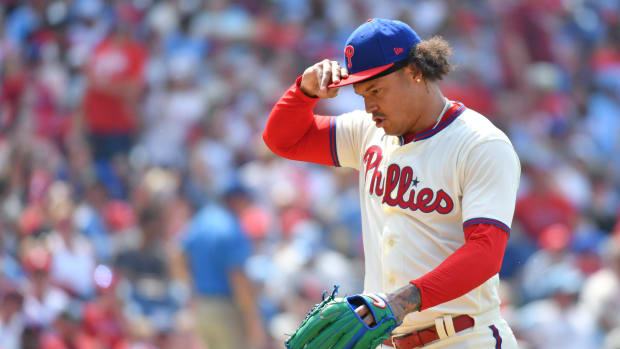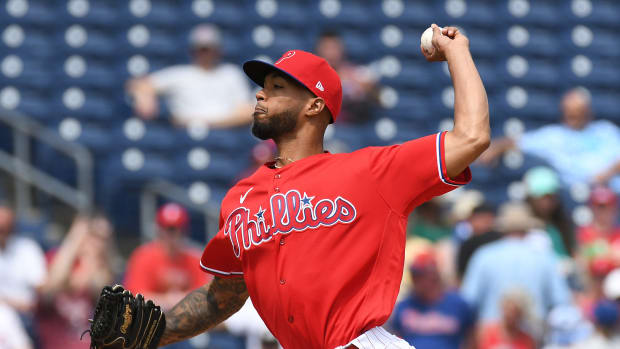A Look Back on the Legendary Career of Phillies Icon Jimmy Rollins
Drafted in the second round of the 1996 MLB draft, Jimmy Rollins went straight from high school to the minor leagues despite committing to Arizona State University on a baseball scholarship. He spent five seasons in the minors and was finally called up to the show in Sept. 2000.
Rollins played 14 games with the Philadelphia Phillies that season, and performed at such a high level that he was seen as the Phillies’ top prospect in the organization.
Come 2001, Rollins changed his number from #29 to the memorable #11, took over the coveted leadoff spot by July, and finished third in Rookie of the Year voting after leading the National League in triples (12), stolen bases (46), and earning the first All-Star selection of his career.
Despite another All-Star selection the following season, Rollins regressed a bit in ‘02 and ‘03 with lower production at the plate and high strikeout numbers. He worked a lot with baseball greats like Tony Gwynn, Larry Bowa, and Bobby Abreu who helped get his swing back and it paid off in 2004.
In '04, Rollins would bring his batting average up to .289 while leading the league in triples for the third time in his career with 12. The following season, Rollins would catch fire at the plate all year long. He earned the third and final All-Star selection of his career and in August he began a hitting streak that would span the final 36 games of the season and leak into the first two games of the 2006 season. The 38-game hitting streak is the eighth longest in baseball history, and the longest in Phillies history.
In that ‘06 season, Rollins became just the third Phillie ever to record three straight seasons scoring 100+ runs for the team. He got off to a slow start, but was ultimately a top shortstop in the league and finished 21st in MVP voting by the end of the year.
2007 was easily Rollins’ best season, and one of the greatest seasons Phillies fans have ever seen. Rollins came into the season a little cocky and claimed to the media that the Phillies were the “team to beat” in the NL East, despite the New York Mets being one game away from the World Series the year before.
As it turned out, Rollins’ cockiness was warranted. He led the team to their first playoff appearance since 1993 and was awarded with the title of Most Valuable Player in the National League thanks to his .295 batting average, 30 home runs, 20 triples, 139 runs scored, and .875 OPS. He also became the first Phillies shortstop to win the Gold Glove Award since Larry Bowa in 1978.
Come 2008, the Phillies were hungry to make it back to the playoffs and Rollins was looking to continue his success on the field. Jimmy missed some time from an ankle sprain, but was able to play in 137 games. He was not as dominant as the year before, but still stole 47 bags and batted .277. The Phillies won 92 games and found themselves right back in the playoffs.
Rollins collected 14 hits in 14 playoff games that include two lead off home runs and 10 runs scored. He was a major piece to the Phillies World Series run in 2008, and it’s safe to say the fans have still not forgotten what his contribution meant to the team and the city.
While his defense at shortstop didn’t falter much, Rollins began to regress at the plate after the ‘08 season. For the last eight seasons of his career, he only batted above .250 twice and his numbers in every major offensive category began to dip. He played his final game with the Phillies in 2014, and after 15 seasons in Philadelphia, Rollins found a home in Los Angeles when he was traded to the Dodgers for Tom Windle and Zach Eflin. He also had a short stint with the Chicago White Sox in 2016 and received an invite to San Francisco Giants’ spring training, but was released prior to the start of the regular season.
Rollins was a superior defensive shortstop and was known for his speed. He is the Phillies all-time leader in hits (2,306), doubles (479), and at bats (8,628). He is second in games played (2,090), and stolen bases (453) while finishing third all-time in runs scored (1,325), triples (111), and stolen base percentage (82.66).
Rollins received the prestigious honor of being included on the Hall of Fame ballot this year. He only received 9.4% of votes, but regardless of his Hall of Fame status, when all is said and done, he is a Phillies legend and one of the greatest players of the 21st century.
More From SI's Inside The Phillies:
- Phillies Prospect Baron Radcliff is the Epitome of Modern Baseball
- How Did These Former Phillies Do on the Hall of Fame Ballot?
- What If Ryan Howard Never Tore His Achilles?
Make sure to follow Inside the Phillies on Facebook and Twitter!


